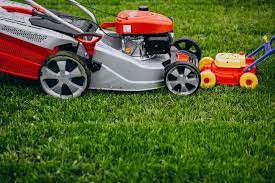Introduction
Lawnmower parents are those who pave the way for their children by eliminating any potential obstacles, challenges or difficulties that their kids might encounter. While these parents may have the best intentions, their overprotective nature can hinder their child’s growth and development. This article offers insights into understanding and working with lawnmower parents to reach a mutually beneficial outcome for all parties involved.
Understanding Lawnmower Parents
The term “lawnmower parent” comes from the analogy of lawn mowers that cut grass evenly to create a smooth, perfect surface. Similarly, these parents strive to create a flawless path for their children by going ahead of them and removing any barriers. They may do this by controlling various aspects of their child’s life, intervening with teachers or coaches on behalf of their child, or even resolving social conflicts for them.
This parenting style stems from a genuine desire to ensure their child’s safety, happiness, and success. However, it can lead to a lack of essential life skills development and problem-solving abilities in the child.
Tips for Working with Lawnmower Parents
1. Respect Empathy: Remember that lawnmower parents have the best intentions for their child at heart. Begin conversations with them from a place of empathy and understanding.
2. Establish Boundaries: Be clear about your role in the child’s life, whether you are an educator or coach, and establish boundaries that maintain a collaborative relationship between you and the parent.
3. Promote Growth: Educate lawnmower parents on the importance of allowing children to experience challenges and setbacks in order to build resilience and become well-rounded individuals.
4. Encourage Parental Involvement: Rather than discouraging parent input, invite them to get involved in meaningful ways such as volunteering at events or joining committees. This allows them to feel connected while still giving the child space to grow.
5. Open Communication: Maintain open lines of communication with lawnmower parents and address any concerns proactively. Listen closely to their feedback and offer solutions that strike a balance between meeting the child’s needs and enabling them to develop essential skills.
6. Offer Resources: Share resources, such as articles, books or workshops, that can help lawnmower parents better understand the potential consequences of their actions and learn alternative approaches to supporting their children’s growth.
Conclusion
Lawnmower parents may present unique challenges in educational and extracurricular settings. However, by understanding their motivations and adopting a collaborative, empathetic approach, it is possible to work together toward a healthier environment that promotes the child’s overall development. Building trust, setting boundaries, and keeping open communication are crucial elements to foster a mutually beneficial relationship between all parties involved.





